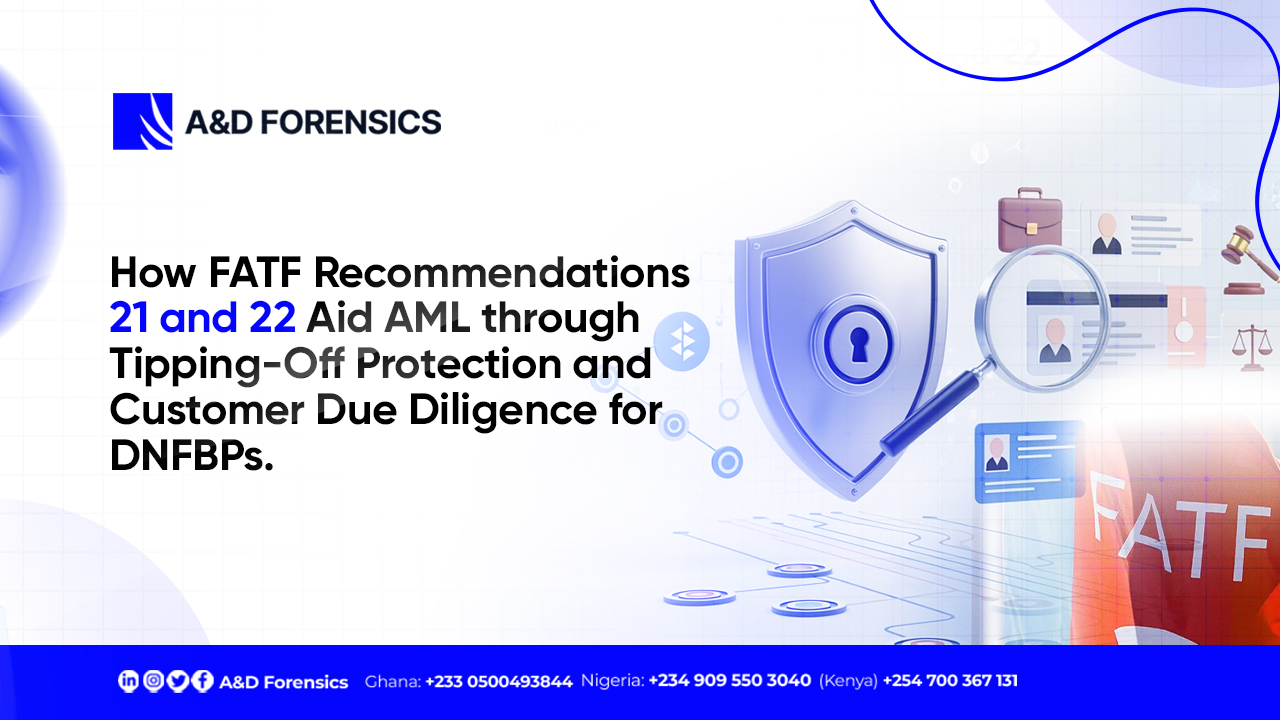Fraud Awareness Week is a global initiative led by the Association of Certified Fraud Examiners (ACFE) to promote anti-fraud education and raise awareness of fraud risks. As financial crimes become more advanced, understanding how fraud works and how it affects individuals, businesses, and entire economies has never been more important. At A&D Forensics, we remain committed to strengthening fraud literacy and supporting organisations as they navigate emerging threats.
What Is Fraud?
Fraud is any intentional deception designed to unlawfully benefit the perpetrator at the expense of another party. It often involves manipulation, concealment, or abuse of trust for financial gain. Fraud affects every sector: banking, fintech, crypto exchanges, private businesses, governments, and individuals.
Common Types of Fraud
Fraud Awareness Week shines a light on the most common fraud schemes affecting organisations today:
- Asset Misappropriation: Theft of cash, embezzlement, payroll fraud, skimming, or misuse of assets.
- Financial Statement Fraud: Overstating revenue, hiding liabilities, or manipulating financial records.
- Corruption: Bribery, kickbacks, conflicts of interest, and extortion.
- Cyber & Digital Fraud: Phishing, account takeover, identity theft, SIM swaps, and ransomware.
- Cryptocurrency & Blockchain Fraud: Rug pulls, Ponzi schemes, romance scams, and money laundering via blockchain transactions.
Why Do People Commit Fraud? (The Fraud Triangle)
A major message during Fraud Awareness Week is the Fraud Triangle, which explains three core factors that drive fraudulent behaviour: Pressure, Opportunity, Rationalisation
- Pressure: Financial hardship, debts, unrealistic targets, and lifestyle expectations often push individuals toward fraud.
- Opportunity: Weak internal controls, lack of oversight, poor reporting systems, or gaps in AML/CFT compliance give fraudsters room to operate undetected.
- Rationalisation: Fraudsters justify their actions by thinking: “I deserve it.”, “I’m just borrowing the money.”, “The company won’t miss it.”, “Everyone else does it.” Understanding these motives helps organisations create safeguards that reduce the risk.
Understanding these motives is one of the core themes of Fraud Awareness Week helps organisations create stronger internal controls, increase transparency, and reduce vulnerability.
The Cost of Fraud Is Staggering And Growing.
According to TransUnion’s most recent report, companies worldwide now lose an average of 7.7% of their annual revenue to fraud. That may sound like a small percentage, but for many businesses, even a few percent can translate to substantial losses, especially when you consider that not all fraud is detected.
For many companies, the median loss per fraud case is significant: ACFE data shows around $145,000, with larger losses in cases involving executives or long-duration schemes.
Beyond direct financial losses, fraud can also inflict long-term damage:
- Reputation and brand value suffer.
- Customer trust is eroded.
- Operational costs increase.
- Compliance and regulatory burdens grow.
These impacts are echoed in recent global fraud-trend reports: a 2025 survey by Ravelin found that 39% of companies reported revenue or profit loss due to fraud, and other major costs included theft of customer data (PII), operational disruptions, and bad press. Fraud Awareness Week encourages organisations to assess these risks seriously, as the long-term damage lost trust, brand erosion, and regulatory pressure is often far greater than the financial loss.
Why Fraud Awareness Week Is More Important Than Ever.
Fraud Is Becoming More Digital. Fraud now frequently involves real-time payments, phishing, identity theft, and sophisticated scams. In the 2025 Global eCommerce Payments Report, real-time payment fraud alone was among the most widespread threats.
- AI and Deepfakes Are Changing the Game: Generative AI is enabling more deceptive fraud deepfake voices, synthetic identities, and fraudulent documents are real risks.
- Internal Controls & Whistleblowing Matter: According to iDenfy, organisations that use confidential reporting channels (hotlines) catch fraud more often, tip lines reduce fraud duration and losses.
- Implementing strong internal controls, regular training, and a culture of transparency can significantly reduce fraud risk.
- Remote Work and Technological Change Increase Vulnerability: The ACFE notes that remote work dynamics, shifting processes, and changing risk environments have contributed to higher fraud risk in recent years.
How Organisations Should Respond During Fraud Awareness Week.
Fraud Awareness week is a critical moment to push anti-fraud culture forward. Here’s how organisations can make the most of it:
- Run Targeted Training: Host sessions on fraud risk, red flags, and reporting. Emphasise digital fraud, internal fraud, and new trends like AI-based fraud.
- Launch or Revamp Reporting Channels: Make sure employees and stakeholders know how to report suspicious behavior anonymously.
- Perform Risk Assessments: Use fraud week to assess your fraud risk exposure, particularly in payment systems, internal controls, and identity processes.
- Promote Fraud Awareness Internally and Externally: Share articles, infographics, and insights via internal communications, newsletters, and social media.
- Leverage Technology: Explore or scale tools like data analytics, anomaly detection, and AI-driven fraud detection and pair them with strong governance.
The goal of Fraud Awareness Week is not just awareness, it is action.
Why A&D Forensics Is Fully Engaged.
At A&D Forensics, we see fraud not just as a financial risk, but a threat to trust, culture, and organisational resilience. This Fraud Awareness Week, we’re committing to:
- Providing tailored fraud-awareness training for teams and communities
- Publishing expert-led content on fraud trends
Our mission aligns perfectly with the global objectives of Fraud Awareness Week.
Conclusion.
Fraud is now a systemic risk not just a financial issue. Fraud Awareness Week serves as a global reminder for organisations to strengthen their culture, improve their systems, and protect their reputation. For any institution committed to resilience, participating in Fraud Awareness Week is not just beneficial, it is essential.
Co Author: Ibrahim Anuoluwapo Azeez






